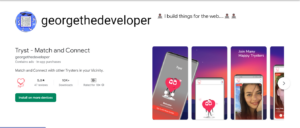Developer Publishing on Google Play Store: From Apps to Games

The Google Play Store is one of the world’s premier platforms for distributing digital content, particularly for the Android ecosystem. Developers, ranging from individuals to large enterprises, leverage this platform to reach millions of users globally with their applications and games. Here’s a general overview of the process of publishing on the Google Play Store:
- Setting up: Before publishing, developers need to register for a Google Play Developer account, which has a one-time registration fee. This account gives developers access to the Play Console, where they manage their apps and monitor performance.
- App Development: Whether it’s a utility app or a game, developers need to ensure that their creations are compatible with the Android platform and adhere to Google’s guidelines for quality and content. This means optimizing for different screen sizes, device types, and Android versions.
- Testing: Before submitting an app or game, it’s crucial to test it extensively to identify and fix bugs, ensure a smooth user experience, and guarantee compatibility with various devices.
- Preparing Store Listing: This involves creating a captivating app description, uploading screenshots and videos, and defining app metadata like category, content rating, and more. The quality of the store listing can greatly influence the app’s discoverability and downloads.
- Pricing & Monetization: Developers can choose to offer their apps/games for free, charge a one-time fee, or use in-app purchases and advertising for monetization. Google Play provides various tools and reports to help developers optimize their revenue strategy.
- Content Rating: Apps and games must be given an appropriate content rating based on their content. Google provides a rating questionnaire to help developers determine the correct classification for their content.
- Deployment: Developers can roll out their apps/games to the Play Store in stages, allowing a percentage of users to download the new or updated app. This phased approach helps in catching unforeseen issues before they impact a larger audience.
- Updates & Maintenance: Post-launch, it’s essential to continuously update the app or game based on user feedback, emerging technologies, and new Android versions. Regular updates can keep the user base engaged and improve app rankings.
- Performance Monitoring: Google Play Console provides various analytics and reports that help developers understand user behaviour, track installations, monitor reviews, and measure financial performance.
- Engagement & Marketing: To enhance visibility in a crowded marketplace, developers often employ marketing strategies like promotional graphics, search ads, app bundles, and partnerships.
- Compliance: It’s crucial to keep abreast of the evolving guidelines and policies of the Play Store. Violations can lead to the removal of the app or game, so developers should periodically review their compliance
In conclusion, publishing apps and games to the Google Play Store is a comprehensive process that involves development, testing, marketing, and continuous improvement. It offers developers an incredible opportunity to showcase their creativity and entrepreneurial skills, while also reaching a vast and diverse global audience.

